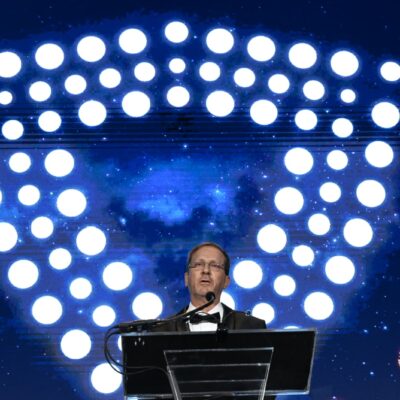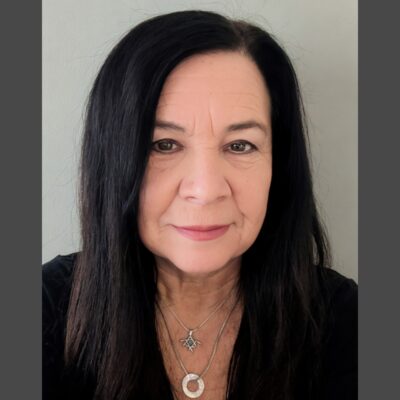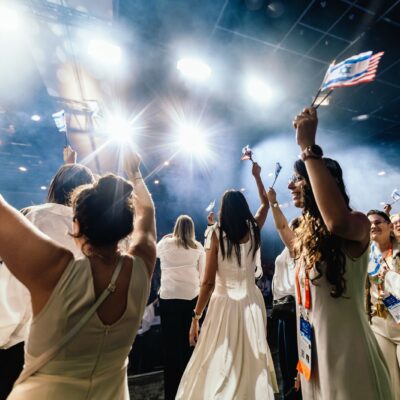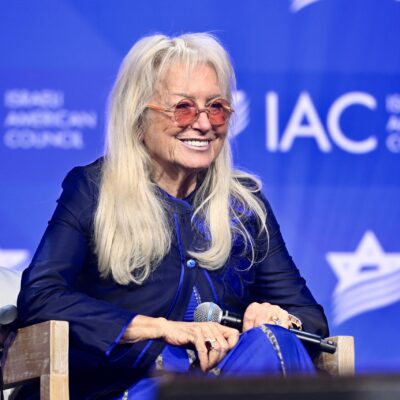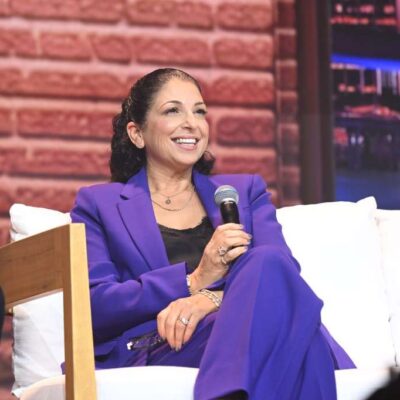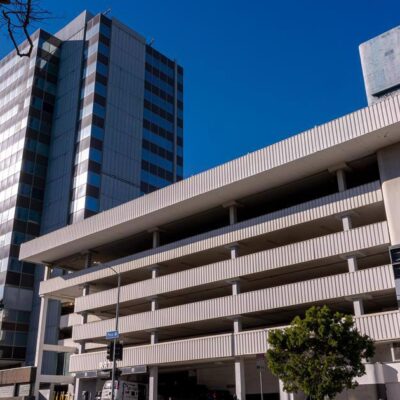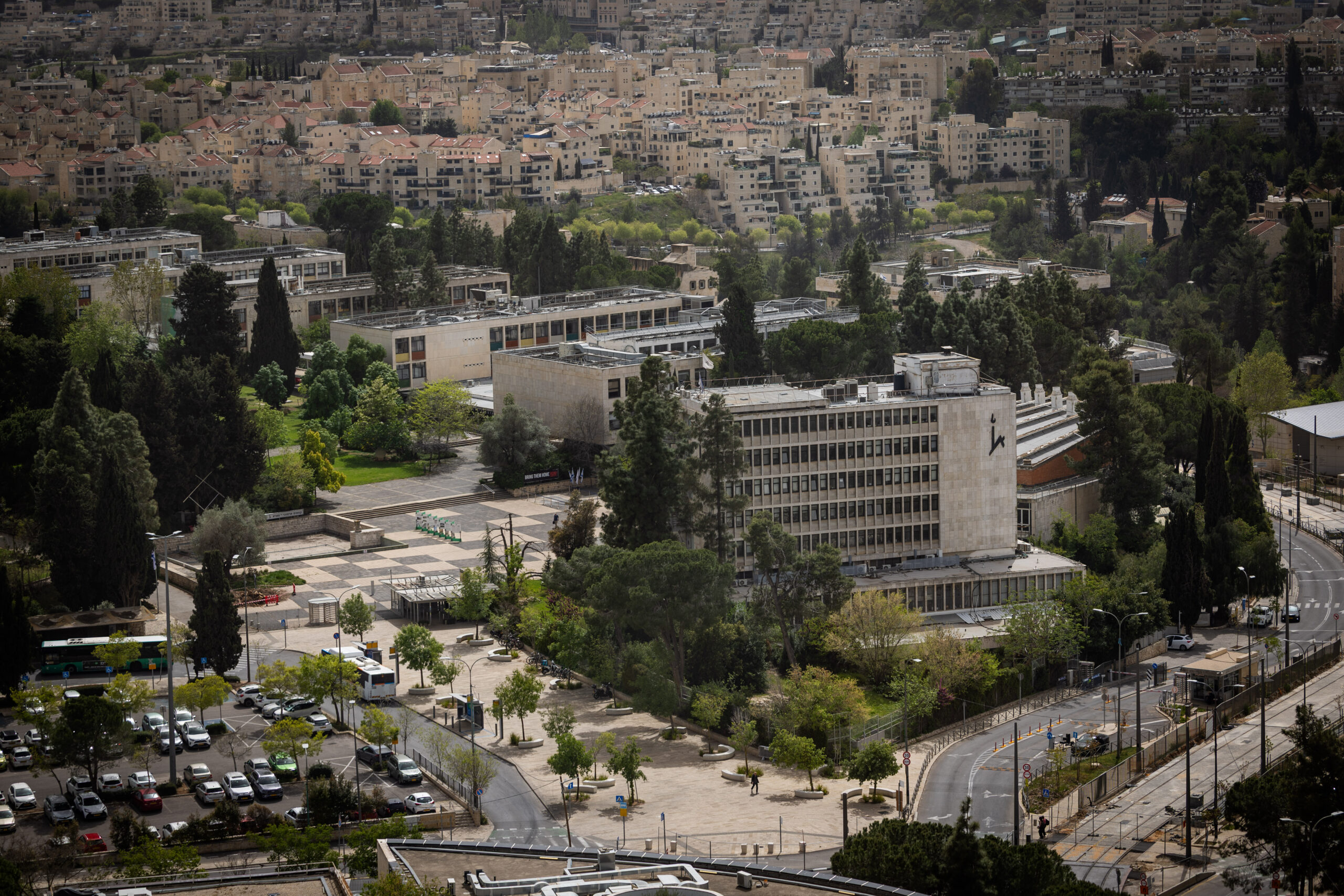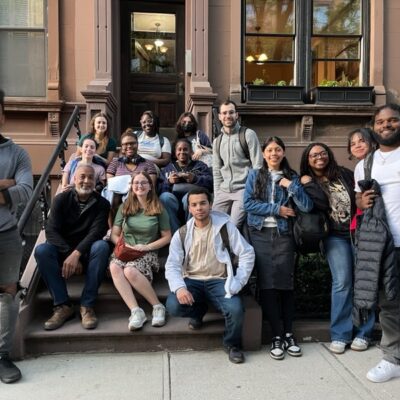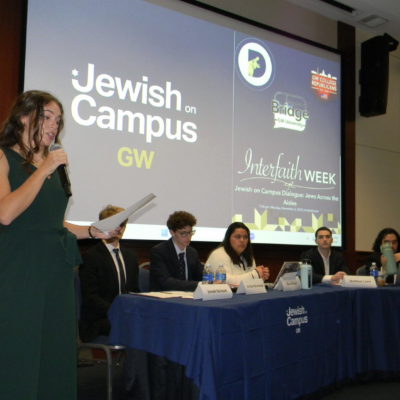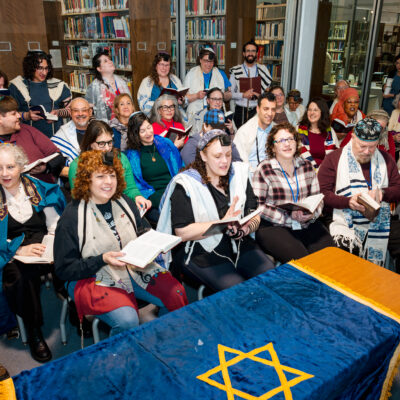Ramah launches Camp Sasson to give kids with cancer, and their families, a free camp experience
When about 20 families gather around a scenic lake in the small town of Palmer, Mass., for arts and crafts, sports and Shabbat services this spring, the weekend will closely resemble a shortened version of the typical overnight summer camp experience at Camp Ramah in New England. But in other ways, it will look different — some kids will be missing a limb or have a bald head. Therapeutic sessions designed specifically for parents, siblings and children living with cancer will make up a large chunk of programming.
On April 12-14, Camp Ramah, a network of Jewish summer camps affiliated with the Conservative movement, will launch Camp Ramah Sasson — the Hebrew word for joy. The initiative is the movement’s first experience offered specifically to families with children battling cancer and is available free-of-charge, even to families who have never been involved with Ramah or the Conservative movement, such as Jeni Rhodes, a resident of Newton, Mass., and her 9-year-old daughter, Anya.
Anya was diagnosed with osteosarcoma, a type of bone cancer, when she was 7. She’s now cancer-free, but receives follow-up scans every three months. The nine-month battle resulted in the amputation of Anya’s leg. “It’s something that you never go back to how life was before exactly,” Jeni Rhodes told eJewishPhilanthropy, adding that the best way to move forward is to be in a community, like the one she is expecting Ramah Sasson will offer. “I’m looking forward to a chance to form a distinctly Jewish community of families that have also gone through this and faced childhood cancer,” she said.
Anya’s father and two sisters, ages 5 and 11, are also planning to participate in the weekend. “When so much of a family’s time and energy goes toward the survival of one of the kids, that has a huge impact on the siblings,” Rhodes said. “So anytime there is a chance to all be together as a family with the support to allow us to have fun and all play together, and also for it to be uniquely Jewish, we’re really excited to be able to share in this together,” she continued, noting the experience “fills a gap.”
“We’ve done camps that are not Jewish and some of our friends who are Jewish and keep Shabbat haven’t been able to participate in those with us,” she said, noting that Anya also participated in an Orthodox camp that didn’t include parents or siblings.
Rabbi Ed Gelb, CEO of Ramah in New England, said he was inspired to create Camp Sasson from conversations over the years with parents of children who have cancer. “Up until now, we have not been able to provide them with the Ramah experience,” Gelb said in a statement. “Now, we hope to bring the community, support, meaning and joy of camp to the entire family and let them know they have a home here.”
Riki Wiederhorn, Ramah’s director of year-round programming, told eJP that kids battling cancer or other illnesses “are sometimes an invisible part of the Jewish community. So we want to shed light.” She said that if the pediatric cancer program goes well, the goal is to run similar initiatives through Camp Sasson catered to children and families dealing with various other serious illnesses, and to also include them in the general summer camp.
“Our long-term goal is also to incorporate these children into the typical summer camp experience in whatever experience they are able to, for example maybe they’d come for 10 days instead of the typical four weeks campers come,” Wiederhorn said. “Teenagers don’t want to feel different, but an 8-year-old might be different,” she continued, noting that that experience would also be free of charge. “But first is getting to know the families and their needs through family camp.”
Camp Ramah Sasson receives financial backing from National Ramah. “But in order to expand the program, we need bigger and more communal partners,” Wiederhorn said, declining to specify the precise costs of the program.
“As far as we know, we are the only liberal, egalitarian stream of Judaism that offers this opportunity,” she continued. “We’re in a unique position to offer help. We already know how to run a family camp. Our learning is how to meet the needs of this particular cohort. We’re putting our own camp expertise to that.”

 Add EJP on Google
Add EJP on Google